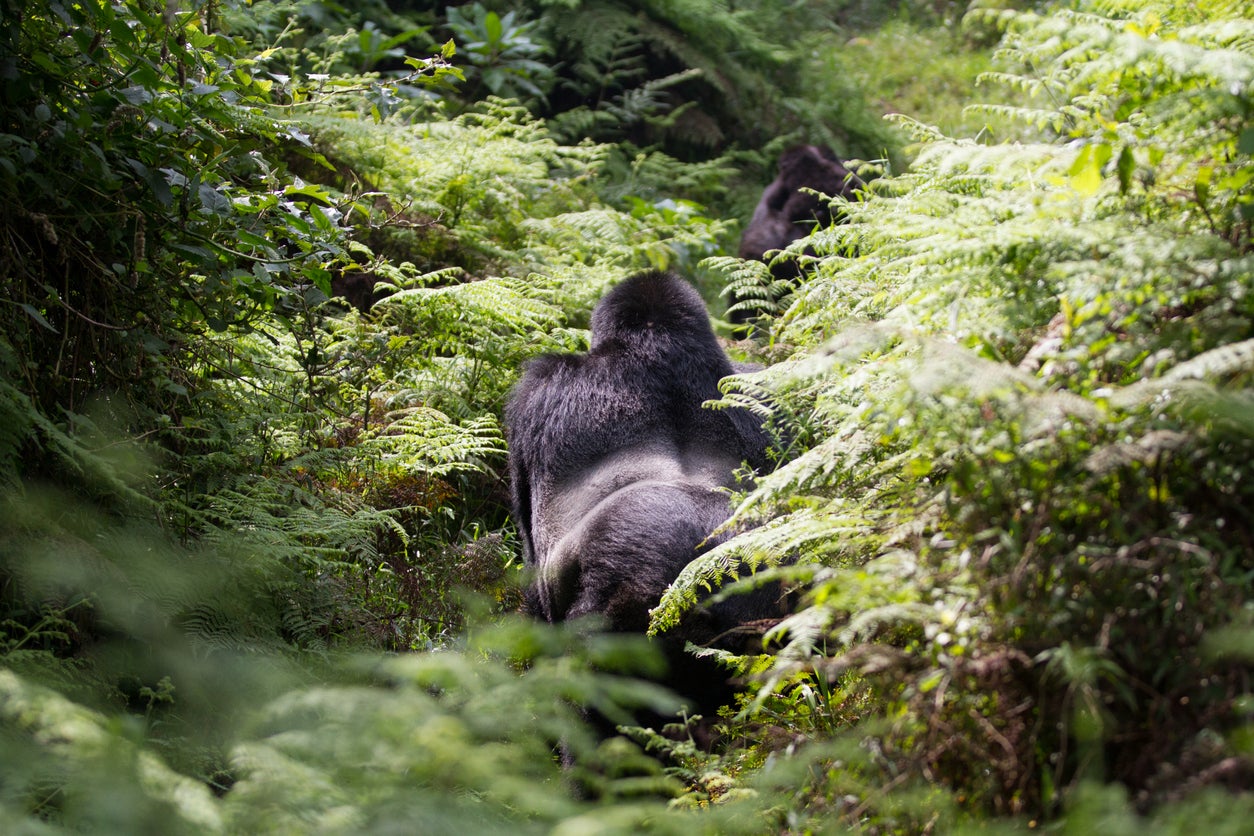Uganda launches new country brand to boost tourism
The East African nation announces ‘Explore Uganda’ to attract visitors back to its National Parks

Your support helps us to tell the story
From reproductive rights to climate change to Big Tech, The Independent is on the ground when the story is developing. Whether it's investigating the financials of Elon Musk's pro-Trump PAC or producing our latest documentary, 'The A Word', which shines a light on the American women fighting for reproductive rights, we know how important it is to parse out the facts from the messaging.
At such a critical moment in US history, we need reporters on the ground. Your donation allows us to keep sending journalists to speak to both sides of the story.
The Independent is trusted by Americans across the entire political spectrum. And unlike many other quality news outlets, we choose not to lock Americans out of our reporting and analysis with paywalls. We believe quality journalism should be available to everyone, paid for by those who can afford it.
Your support makes all the difference.Uganda has launched a new brand identity to boost its tourism sector, which generates vital funds for conservation in the country, as it seeks to recover from the impact of the COVID-19 pandemic.
The new identity, which was launched by Uganda’s president Yoweri Museveni at a special event in the country’s capital Kampala, is the result of over a year’s work by the Uganda Tourism Board.
Called ‘Explore Uganda’, it replaces the former ‘Pearl of Africa’ identity with one that its creators say is more modern and suitable for promoting Uganda as a tourist destination to the outside world, while also encouraging Ugandans to appreciate the natural beauty in their country.
The launch is intended to help reverse the impact of COVID-19 on Uganda where, like in many countries in Africa, the number of visiting tourists was badly hit.
The country quickly shut down national parks such as Bwindi Impenetrable National Park which was closed to protect against the chance of gorillas and chimpanzees being infected.
Tourism provides up to 60 per cent of the Uganda Wildlife Authority’s operating revenue and is also an important source of income for communities living around parks such as Bwindi, where poaching rose sharply during lockdown as some villagers entered the park to hunt for food.
At the launch, the country’s president revealed that he was first by the tourism board’s head Lilly Ajarova with the proposal a year ago.
“When they came to see me, I told them: ‘What new thing are you coming to tell me?’,” he said. “I have heard all these stories. They said: ‘No, we have come to tell you the difference between visiting and exploring’. They said, with ‘visiting you come and go but with exploring you come, you stay, you go and look’. I said: ‘These people, they are putting a lot of concentration’.”
He said that beyond its biodiversity, Uganda had much the world should explore and learn from, citing the example of how the country had sought to contain COVID-19 compared with Europe where the disease was caught by old people living in care homes rather than as part of an extended family.
He also highlighted Uganda’s abundant vegetation, temperate climate, variety of wildlife, strategic location on the Equator, cultural diversity, community tourism and the security it could provide visitors.
At the launch event, Ms Ajarova told guests that ‘Explore Uganda is an invitation to our tourists – domestic, regional and international – to rediscover the magnificence of [Uganda]. We are promising and inviting them to Explore Uganda for the adventure of a lifetime.”
She said that before the new brand there were a number of campaigns by various tourism entities in Uganda, most of which were built around the message “Visit Uganda” , something that the tourism board head said did not appropriately capture the uniqueness of Uganda’s attractions.
“If you think about it, when you invite someone to visit you, you are simply asking them to check on you, maybe for a few days. But an invitation to explore is really about inviting someone to indulge themselves. To spoil themselves; to delve into; to deep-dive; to discover and rediscover the depth, range and variety of attractions,” she explained.
The conservation NGO Fauna and Flora ranks Uganda among the top ten most biodiverse countries globally. Among others, it is home to more than half of the world’s remaining population of mountain gorillas, 11 per cent of the world’s recorded species of birds, more than 1,200 species of butterfly and is home to 45 per cent of Lake Victoria, Africa’s largest lake. Its landscapes also include the Rwenzori Mountains, the only snow-capped mountains on the African Equator.
The country’s Minister of Tourism, Tom Butime, said that before the COVID-19 pandemic tourism had been growing, accounting for 7.7 per cent of GDP and about 6.3 per cent of all formal employment in Uganda.
“The launch of the Brand is part of a response to the recovery after this dreadful pandemic,” he explained. “We are getting back into the market with a unified message and a clear promise and call to action.
“The launch of the Destination Brand is both vital to the restarting and rebuilding of the tourism sector as it provides a positive, recognisable and firm assurance of the beauty we radiate as a people and landscape of Uganda.”
Join our commenting forum
Join thought-provoking conversations, follow other Independent readers and see their replies
Comments